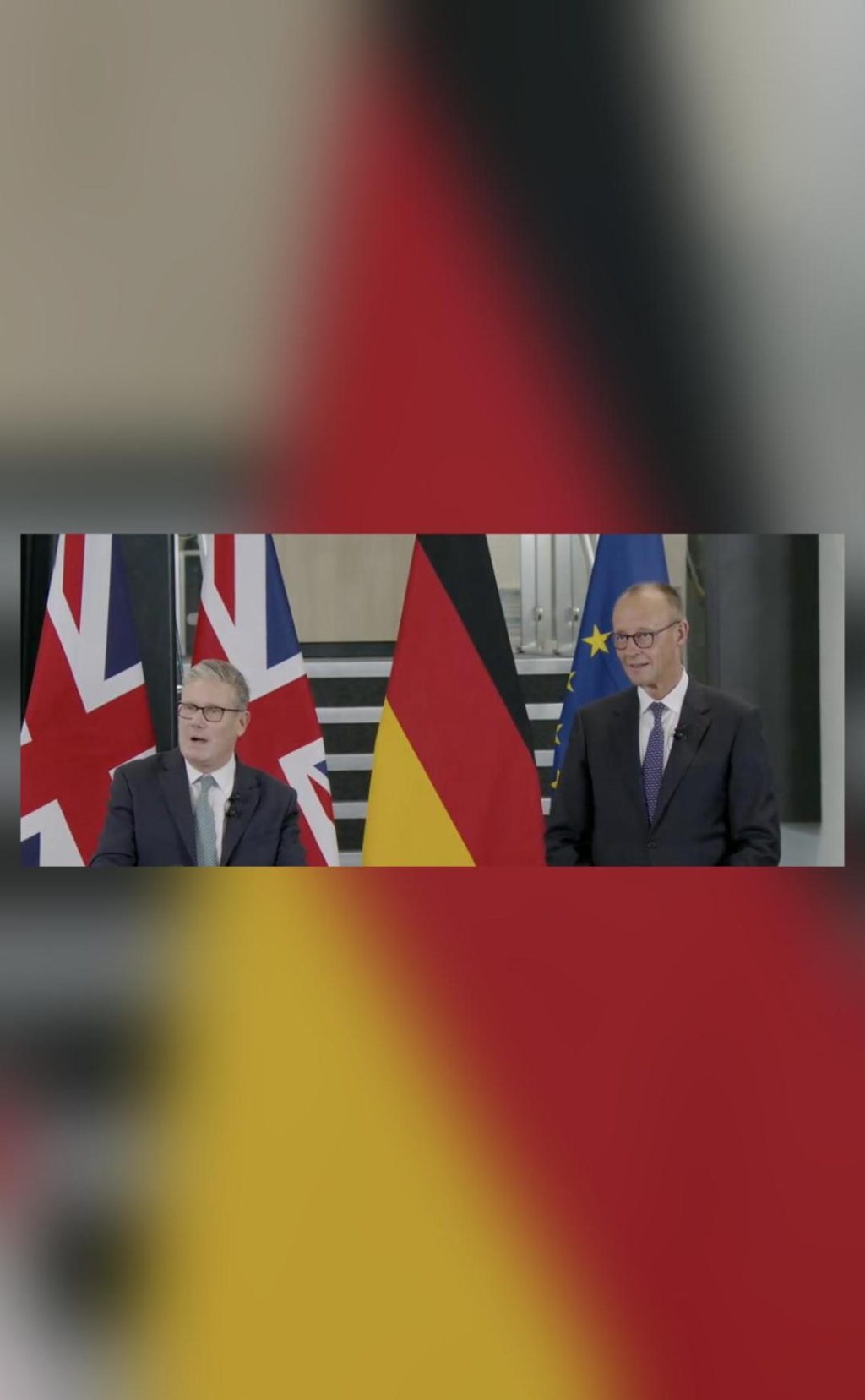
UK, Germany Sign Treaty to Enhance Defence & Migration Cooperation
In a significant move to strengthen ties and address common challenges, British Prime Minister Keir Starmer and German Chancellor Friedrich Merz signed a landmark treaty on Thursday, marking a major step forward in the bilateral relations between the two nations. The treaty, signed 80 years after the end of World War II, aims to boost defence and economic cooperation, as well as to jointly tackle migrant smuggling.
The newly signed treaty is a testament to the enduring friendship and cooperation between the UK and Germany, two of the most influential nations in Europe. The pact is seen as a significant development in the wake of the COVID-19 pandemic, which has highlighted the importance of international cooperation in addressing global challenges.
Key Provisions of the Treaty
The treaty includes several key provisions aimed at deepening defence and economic ties between the two nations. Some of the key areas of cooperation include:
- Defence: The treaty will enable the UK and Germany to share intelligence and coordinate their defence policies, particularly in the face of emerging threats from Russia and China.
- Economic Cooperation: The pact will promote trade and investment between the two nations, with a focus on key sectors such as technology, renewable energy, and infrastructure development.
- Migration: The treaty will provide for greater cooperation on migration issues, including the tackling of migrant smuggling and human trafficking.
- Connectivity: The pact will establish a new direct rail connection between the UK and Germany, aimed at boosting economic and people-to-people ties.
The treaty is seen as a significant step forward in the bilateral relations between the UK and Germany, which have been strengthened in recent years through a series of high-level meetings and agreements. The signing of the treaty comes as the two nations face a range of common challenges, including the threat of terrorism, cyber attacks, and the need to address climate change.
Background to the Treaty
The signing of the treaty follows a series of high-level meetings between British Prime Minister Keir Starmer and German Chancellor Friedrich Merz in recent months. The two leaders have been keen to strengthen ties between the two nations, particularly in the wake of the UK’s departure from the European Union.
The treaty is seen as a major achievement for the two leaders, who have been working closely together to promote cooperation and strengthen ties between the UK and Germany. The pact is also seen as a significant development in the wake of the COVID-19 pandemic, which has highlighted the importance of international cooperation in addressing global challenges.
Impact of the Treaty
The signing of the treaty is likely to have significant implications for the UK and Germany, as well as for the broader European region. Some of the key impacts of the treaty include:
- Strengthened Defence Ties: The treaty will enable the UK and Germany to share intelligence and coordinate their defence policies, particularly in the face of emerging threats from Russia and China.
- Boost to Trade and Investment: The pact will promote trade and investment between the two nations, with a focus on key sectors such as technology, renewable energy, and infrastructure development.
- Enhanced Connectivity: The treaty will establish a new direct rail connection between the UK and Germany, aimed at boosting economic and people-to-people ties.
- Improved Migration Cooperation: The pact will provide for greater cooperation on migration issues, including the tackling of migrant smuggling and human trafficking.
Conclusion
The signing of the treaty between the UK and Germany is a significant development in the bilateral relations between the two nations. The pact is seen as a major step forward in the wake of the COVID-19 pandemic, which has highlighted the importance of international cooperation in addressing global challenges.
The treaty is likely to have significant implications for the UK and Germany, as well as for the broader European region. It is expected to strengthen defence ties, boost trade and investment, enhance connectivity, and improve migration cooperation between the two nations.
As the UK and Germany move forward with the implementation of the treaty, it is likely that other European nations will follow suit, recognizing the importance of international cooperation in addressing global challenges.



